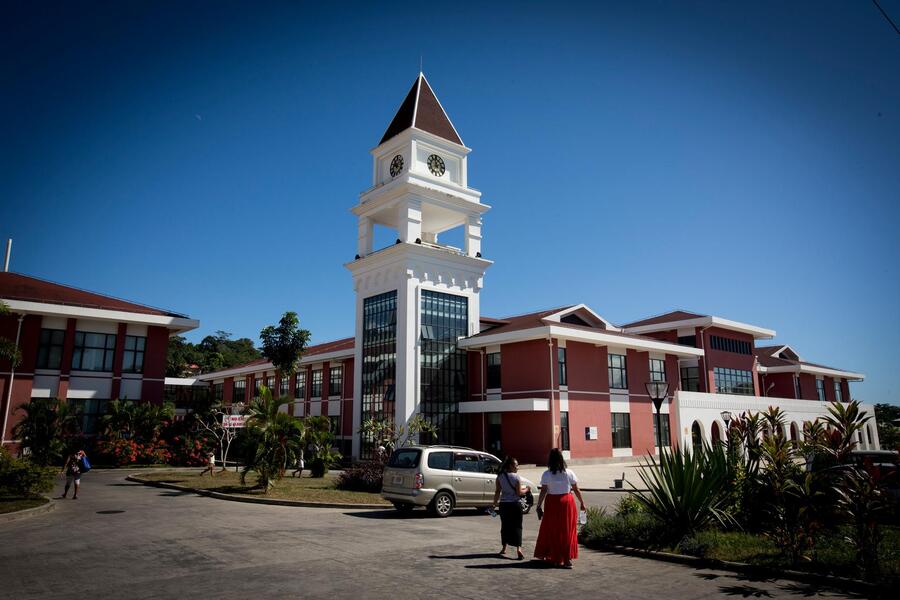One of the three compressors that backs up the cooler at the pharmaceutical warehouse, which houses all vaccines "was turned off by someone" at the hospital, so when the malfunction occurred to the refrigerator, it was completely shut off as the back compressor did not kick in automatically.
This led to the damaging of the more than 3,000 Pfizer vaccinations.
This was revealed in a letter by the Kooline refrigeration Samoa Limited to the Ministry of Health dated 25 of February, 2022 and was accompanied by the Incident Report prepared by Dr Robertson Thomsen the ACEO for the Ministry of Health.
Obtained by Radio Polynesia, Dr Thomsen’s report indicated that at 10am on 14 of February, it was reported there was a fridge cooling fault to the main storage walk-in cooler at the pharmaceutical warehouse.
The MOH team and Kooline managed to operate the standby compressor which brought the temperature back down to less than 8 degree Celsius, the right temperature to store the Pfizer vaccines.
The temperature logger is set up to be monitored remotely via Bluetooth and WiFi to enable any changes to be monitored and detected using a cell phone by accessing the supply website dashboard.
The report says on the night in question, the automated temperature logger inside the fridge started to detect a gradual rise in temperature above 8 degree Celsius and the breach is believed to be caused by sudden fluctuation with the main power supply to the warehouse.
This caused “the primary compressor to malfunction” which led to the failure of the primary compressor to properly shutdown in order for the 2back up compressor to start.”
Furthermore it also caused failure to the internal temperature sensors to link and synchronize to the Bluetooth tablet.
The report says the AztraZeneca was not affected but 3,240 Pfizer vaccines were affected by the temperature breach and as per agreement with the New Zealand Government, they had to report it.
Seiuli Timothy Betham of Kooline in his letter noted in his letter there are three compressors and two that are operational with a third one placed as back up and it’s set up that when one fails the other automatically activates.
However, their investigation uncovered the second compressor was manually turned off.
Furthermore, Seiuli urged the Ministry of Health that a monthly inspection of the cooler at the pharmaceutical warehouse should be conducted on a monthly basis.
Dr Thomsen in his report also made recommendations for Cabinet’s consideration to have inspections once every two months for maintenance and repairs; also to expedite construction and furbishing of a New Vaccine Storage and Distribution facility and to procure and connect voltage stabilizers to protect equipment from power surge.










